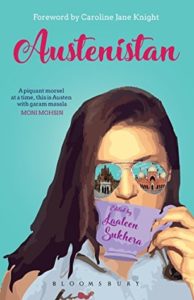
 I’ve been interested for some time in organizing a course focusing on developing competence in intercultural communication through fiction. An obvious choice are language autobiographies such as Eva Hoffmann’s Lost in Translation: Life in a New Language (1989) or Richard Rodriquez’ Hunger of Memory: The Education of Richard Rodriguez (1982), which offer insight into language and culture through individual stories, making language choice and the affective side of second language acquisition personal and concrete. Fantasy stories and science fiction, from Tarzan to the Hitchhiker’s Guide to the Galaxy provide radically different perspectives on human culture. They invite us to see our world through fresh eyes. The best of such fiction engages us emotionally, making us participants in the stories, and thus making them meaningful and memorable.
I’ve been interested for some time in organizing a course focusing on developing competence in intercultural communication through fiction. An obvious choice are language autobiographies such as Eva Hoffmann’s Lost in Translation: Life in a New Language (1989) or Richard Rodriquez’ Hunger of Memory: The Education of Richard Rodriguez (1982), which offer insight into language and culture through individual stories, making language choice and the affective side of second language acquisition personal and concrete. Fantasy stories and science fiction, from Tarzan to the Hitchhiker’s Guide to the Galaxy provide radically different perspectives on human culture. They invite us to see our world through fresh eyes. The best of such fiction engages us emotionally, making us participants in the stories, and thus making them meaningful and memorable.
At times, they may offer interesting takes on human language as well. That’s the case with the fiction of Ursula Le Guin, who died last month. A recent blog post by Martin Edwardes points to this aspect of her work:
Le Guin’s tales give us insights into different ways of being human, from the deceptively mundane (the Orsinian Tales) through the remote but plausible (the Hainish Cycle of science fiction novels), and into the enchantingly fantastic (the Earthsea stories). Her stories help us to understand others and ourselves. They demonstrate the great power that language has in creating imagined worlds.
This came naturally to Le Guin, growing up with parents who were both anthropologists. That may have been at the root of her interest in languages, which is a major theme in her fiction. In the Dispossessed (1974), an anarchist society (on the planet Anarres) is evoked, which has no laws and no property ownership. The people of Anarres have developed their own language to reflect that culture and ideology. In that language, Pravic, there are no possessive pronouns (“my”, “your”, “their”, etc.) and there are no verbs such as “have” or “give” which index personal ownership.
Other kinds of stories offer different insights into the human condition and how it is manifested in different cultures. Folk tales, such as the Brother Grimm’s fairy tales, evoke shared human dreams and desires through the many variations stories like Cinderella have in different cultures. On the other hand, works which are concrete and localized in their story lines and social contexts may offer illuminating views into our own lives and times. A recent story on NPR reported on two sisters in Pakistan who were inspired by the novels of English writer Jane Austen, such as Pride and Prejudice (1813), to curate reimagined Austen-like stories set in contemporary Pakistan, Austenistan (2017). Austen’s stories revolve around women who need to marry well and face pressure from family and society to do so. The Pakistani sisters, Mahlia Lone and Laaleen Sukhera, explain in the NPR interview that that situations is very similar to theirs:
We find it easy to relate to her. We find it easy to relate to her era and her characters because Pakistan 200 years later is still very similar to the Regency period… So one of the basic themes in, for example, “Pride And Prejudice,” was the law of primogeniture. If there is no son, then the father’s estate goes intact to his next male relative. We actually have a law like that here. How much more real and substantial can it be?
In some respects, contemporary Pakistan may have some cultural characteristics and norms which share more similarities with the world portrayed in Austen’s novels than does 21st-century England. In his book Intercultural Communication and Ideology (2011), Adrian Holliday points to this aspect of Austen’s work:
While many historical cultural references may be shared, the early 19th-century British society depicted by Jane Austen is no less alien than that of a so-called ‘other culture’. The richness of thick description in Austen’s literature as art enables greater understanding than the fragmentation of available information about such foreign locations.
The “thick description” Austen provides – detailed information about the setting, the characters’ social and economic situation, the social mores and laws in place at the time, the insights into the characters’ thoughts and dreams, which may be at odds with social norms – makes the world both real and believable, enabling the reader to experience the events vicariously, along with the heroines. As Holliday points out, this is quite different from the fragmented and arbitrary views we typically get into other cultures. In the case of Brits reading Austen, there is also not the barrier of a foreign culture: “Understanding Austen’s society is not inhibited by our long history of mistrust for the foreign Other. Studying Austen’s society would be an excellent basis for studying the universals of the nature of culture.”
That is the wonder of reading novels, being able to see common human characteristics through individual life histories. The stories intrigue us with their uniqueness and specificity, while the shared human experience they evoke may lead us to more acceptance of surface-level differences among us. An article in Science a few years ago described experiments that showed how literary fiction can play an important role in “understanding others’ mental states…a crucial skill that enables the complex social relationships that characterize human societies”. In other words, stories lets us experience what it is like to see the world from someone else’s perspective.


